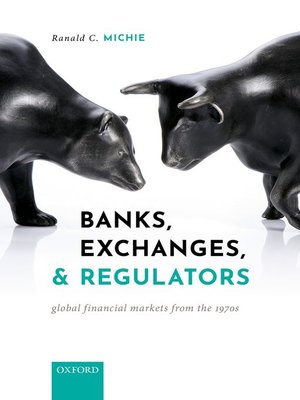Banks, Exchanges, and Regulators
ebook ∣ Global Financial Markets from the 1970s
By Ranald C. Michie

Sign up to save your library
With an OverDrive account, you can save your favorite libraries for at-a-glance information about availability. Find out more about OverDrive accounts.
Find this title in Libby, the library reading app by OverDrive.



Search for a digital library with this title
Title found at these libraries:
| Loading... |
Never have financial markets been subjected to a period of change as rapid and extensive as took place from the 1970s onwards. In the 1970s global financial markets were controlled by governments, compartmentalized along national boundaries, and segregated according to the particular activities they engaged in. This all disintegrated in the decades that followed under the pressure of market forces, global integration, and a revolution in the technology of trading. One product of this transformation was the Global Financial Crisis of 2008, which exposed the fragility of the new structures created and cast a long shadow that we still live in today. The response to that crisis has shaped the global financial system, which has been tested once again by the coronavirus pandemic. However, none of the outcomes of this transformation were inevitable, despite the forces at work. They were the product of decisions taken at the time for a multitude of reasons. Banks, exchanges, and regulators were faced with unprecedented challenges and opportunities as a revolution swept away traditional ways of conducting banking, the methods used to trade in financial markets, and the rules and regulations employed to enforce discipline. In this book Ranald C. Michie provides an authoritative and unrivalled account of this upheaval based on a careful and exhaustive reading of the Financial Times over the last four decades, using it to provide a source of material unmatched by any other in terms of depth and coverage. By studying what happened and why in real time, it is possible to explain the decisions taken that shaped the course of the transformation and its repercussions.






